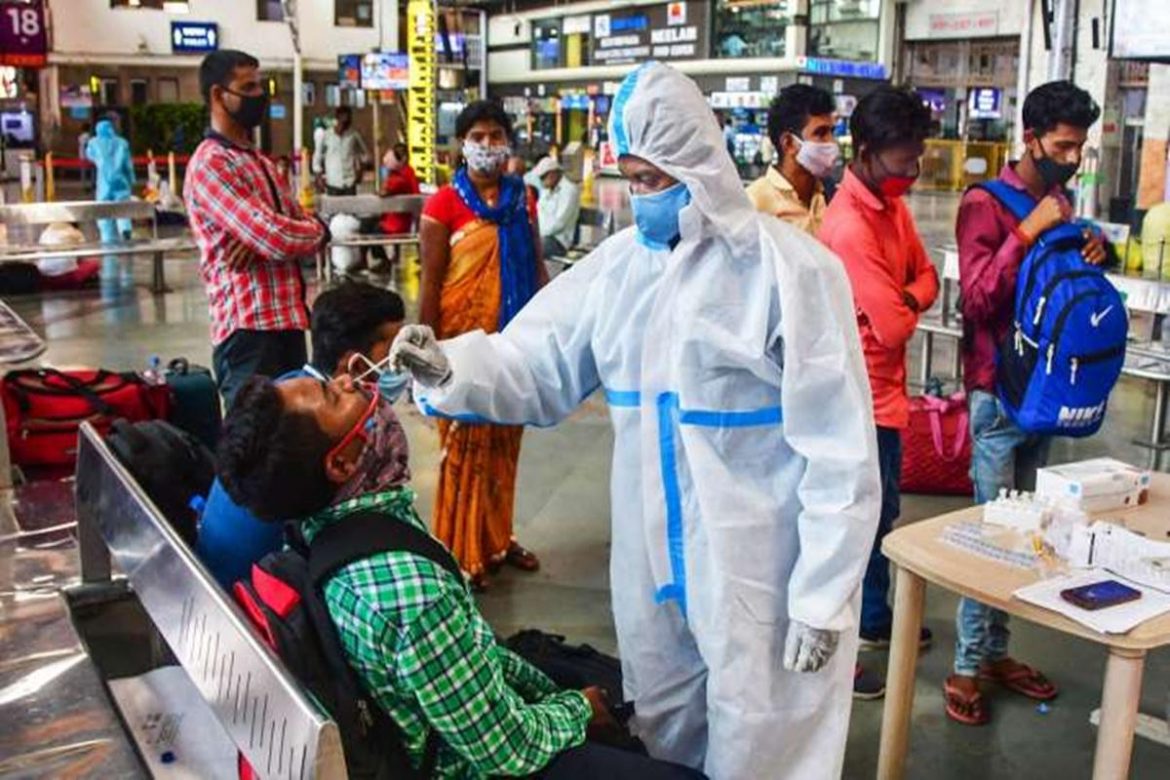The third Covid Wave in India will be Inevitable and could impact the country in the next six to eight weeks said AIIMS Chief Randeep Guleria to a leading news channel this morning.
“As we have started unlocking, Covid’s behaviour is again missing. From what happened between the first and second waves, we seem to have not learned. Again crowds are growing… people are flocking together. It will take some time to start to increase the number of instances at the national level. But it could happen within the next six to eight weeks†Dr Guleria said that.
“Everything relies on how we go on with Covid’s proper conduct and crowd prevention,†he added.
Dr Guleria said that the Delta-plus variant developed from COVID-19 Delta was a novel source of worry with monoclonal antibody therapy.
So far, almost 5% of the population of the country has been vaccinated on two doses. By the end of this year, the Government intends to vaccinate 108 crores of over 130 crore persons in the country.
“This is the biggest challenge. A new wave can normally take up to three months, but depending on several conditions, it might possibly take significantly less time. Apart from the appropriate behaviour of Covid, strict observation must be ensured. Last time we witnessed a new variety – which was generated and developed from outside – leading to a big increase in the number of instances. We know that the virus continues to mutate. Aggressive monitoring is necessary for hotspots,†he added.

“Mini-lockdown in any part of the country, which witnesses a surge and a rise in positivity rate beyond 5 per cent, will be required. Unless we’re vaccinated, we’re vulnerable in the coming monthsâ€. He stressed on testing, tracking, and treating should be the focus in hotspots.
“We have to factor in human behaviour while unlocking, which needs to be done in a graded manner†Dr Guleria added.
“Virus is still mutating, we need to be careful†he informed citing the spread of the Delta variant in the United Kingdom, which is now facing a third wave.
“The gap between the new waves is shortening and it’s worrying†Dr Guleria said.
“During the first wave (in India), the virus was not spreading that rapidly… all that changed during the second wave, and the virus became much more infectious. Now the Delta variant that’s spreading is much more infectious. Faster spread is likely†he said.
In Maharashtra, experts have warned that at its peak, the third wave of the virus could cause 8 lakh active cases in the state, which currently has around 1.4 lakh patients.
“When there is a huge increase in the number of cases, shortage of (hospital) beds follows. The strategy should be multi-pronged – we have to make sure fresh cases don’t rise. Any healthcare system globally will tend to collapse with the unprecedented rise in the infections,†Dr Guleria stressed.
Speaking about the increased gap between two vaccine doses he said that “Nothing is written in stone. We will have to look at new strategies. But we need to have strong data to take that decisionâ€.
The decision should be driven by science and not the shortage of doses, he suggested.
The United Kingdom adopted the one-shot strategy not only for Astrazenaca (which is being used as Covishield in India) but also Pfizer, Dr Guleria pointed out.
“One-shot strategy may not be a bad strategy as it can give protection to larger number of people†Dr Guleria said. While explaining the Delta-plus variant AIIMS chief said “We need an aggressive genome sequencing to see how the virus is behaving. Does the vaccine efficacy come down, does the monoclonal antibody treatment work? To do all of that, we need to have a large or very good network of labs to study the data. I think that’s where to move in the next few weeks. And that’s the new frontier we need to develop if we want to succeed in our fight against Covid.â€
👉 Click here to read the latest Gujarat news on TheLiveAhmedabad.com




